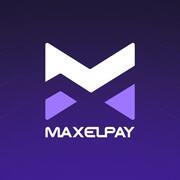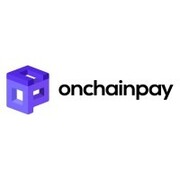
Best Blockchain Payments Systems 2026
What is a Blockchain Payments System? Blockchain payment systems process, verify, and enforce transactions using blockchain technology. Blockchain is also referred to as Decentralized Ledger Technology (DLT). Blockchain payment systems facilitate fast, secure, low-cost, and transparent payment processing services without the need for the involvement of financial institutions. This efficiency eliminates money transfer waiting periods and third-party processing fees. It simplifies and expedites ...
We’ve collected videos, features, and capabilities below. Take me there.
All Products
Learn More about Blockchain Payments Software
What is a Blockchain Payments System?
Blockchain payment systems process, verify, and enforce transactions using blockchain technology. Blockchain is also referred to as Decentralized Ledger Technology (DLT).
Blockchain payment systems facilitate fast, secure, low-cost, and transparent payment processing services without the need for the involvement of financial institutions. This efficiency eliminates money transfer waiting periods and third-party processing fees. It simplifies and expedites international, cross-border payments, effectively making money borderless.
When used in tandem with smart contract platforms (self-executing contracts based upon the blockchain), it automates payments and can halt payments when contract agreement terms are violated.These systems are used by individuals, businesses, and financial institutions.
How Blockchain Payments Work
A blockchain functions as a distributed ledger. When this term is used in the context of payments, it refers to information related to accounts, account balances and transactions. It is secured, replicated, and synchronized across countries, sites, or institutions. Anyone on the network has a real-time copy of the data and can view any changes instantly.
A block contains timestamped digital records of transaction data. Each block has its own unique id, cryptographic hash, along with the hash of the previous block, which connects the blocks, producing the chain. Once a block is added, it cannot be changed. This makes blockchain a series of immutable records.
If two parties are part of a secure blockchain and hold a distributed ledger, making a payment is done by adding a new transaction to the chain with the payment details. It is then validated by each participant. The whole process can be completed in seconds.
Related categories include cryptocurrency payment gateways, which are used by businesses to accept, process, and manage cryptocurrency transaction payments from customers in exchange for products or services. They are also related to cryptocurrency exchanges, which are used to buy and sell cryptocurrencies.
Blockchain Payments System Features
Leading blockchain payments systems should include most or all of these features:
- Digital Identity Verification
- Automated Know-Your-Customer (KYC) processing
- Data Security
- Peer to Peer Transactions
- Facilitates Cross-Border Transactions
- Eliminates the need for third-party processors - reduced processing fees
- Anti-Money Laundering
- Cyber Crime Prevention
Blockchain Payments System Comparison
Point to consider before deploying a blockchain payments system include:
- Integration: How do blockchain payments and blockchain payment systems integrate with your existing financial systems?
- Governance: Blockchain payments are immutable, resulting in the inability to reverse transactions or cancel payments. How will your teams and other systems interact with that environment?
- Regulatory Compliance: Ensure the payment system complies with the regulations for your government and geographical location. Some products are regionally-focused due to these needs.
- Implementation: There are different approaches when implementing a blockchain payment system. Some of the most common include add-on implementation platforms, building a new blockchain network in-house, building a new token on an existing network, or using an existing cryptocurrency gateway.
Blockchain Payments System Pricing Information
Blockchain payment systems range from free, open source platforms to those that charge transaction fees starting at .0001 % and go up to 1.0 % of the transaction amount. The fees are significantly lower than those charged by traditional financial institutions and credit card processors. Free trials are available for some systems.
Blockchain Payments FAQs
What does a Blockchain Payments System do?
What are the benefits of using a blockchain payments system?
The primary benefits of blockchain payments systems include:
- Real-time processing – payments can be completed in seconds, providing early access to funds
- Reduces or eliminates intermediaries - expediting transfers and lowering costs
- Transparency and security – the transactions are immutable, tamperproof, and visible to everyone
- Cross-border payments - enables fast, safe, and secure cross-border payments
- Automation with smart contracts – automates payment flows and reduces payment time
- Reduces trade finance costs – reducing operational and compliance costs
- Fosters trust between parties
How much does using a Blockchain Payments System cost?
What are the best Blockchain Payments Systems?
These are the more popular blockchain payments systems.























